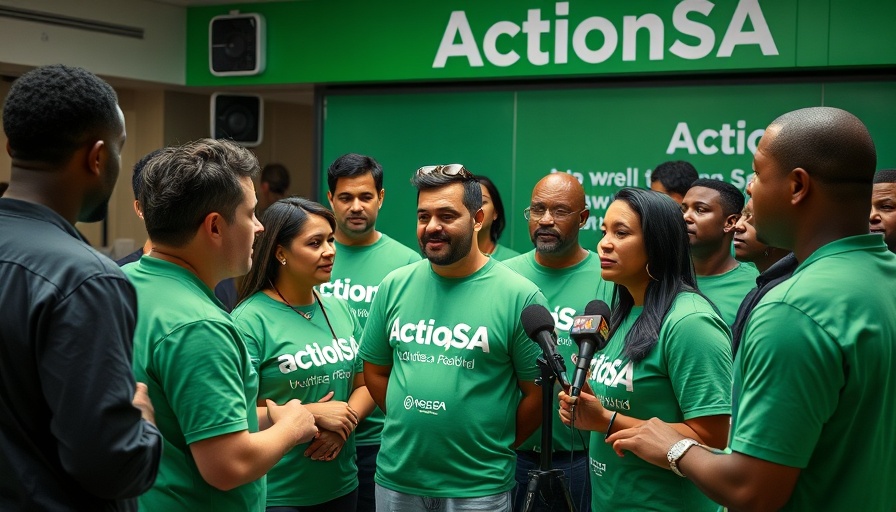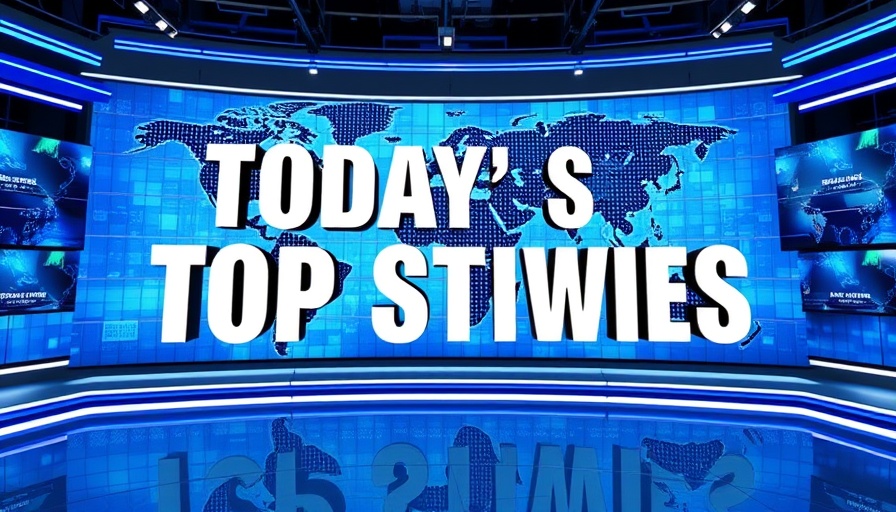
ActionSA Steps Up: A Vigilant Eye on Police Accountability
In a significant move for political oversight, ActionSA has pledged to closely monitor the investigations surrounding Police Minister Senzo Mchunu after troubling allegations were raised by KwaZulu-Natal Provincial Commissioner Lieutenant General Nhlanhla Mkhwanazi. As the scrutiny intensifies, the implications of these investigations could resonate deeply within South Africa's governance landscape.
The Politicization of Committees: A Call for Integrity
ActionSA's member of parliament, Dereleen James, has voiced concerns about the integrity of the oversight process. She pointed out that the committee tasked with investigating Mkhwanazi’s allegations should not be chaired by anyone affiliated with the ANC, a party implicated in the claims. This highlights an essential conversation around the potential erosion of public trust if investigations appear politically influenced. The credibility of political entities and their committees must remain above reproach to foster public confidence in the governance processes, particularly when serious allegations of criminal links and corruption impact a functioning cabinet member.
The Fight Against Corruption: ActionSA's Stance
ActionSA has taken a firm position against corruption, asserting that it will leverage its committee representation to ensure the investigation is both transparent and independent. James remarked on the importance of pursuing an investigatory process that can withstand public scrutiny. These calls for accountability resonate strongly in the wider context of ongoing public discontent over perceived state capture and corruption prevalent within government structures.
Historical Context: South Africa’s Landscape of Accountability
South Africa has a complex history involving allegations of state capture, particularly during the tenure of former President Jacob Zuma. The public's disappointment with broken promises surrounding anti-corruption measures has laid the groundwork for current organizations like ActionSA to gain traction. As elections loom, with the 2024 general elections at the forefront, parties must navigate these turbulent waters while ensuring they advocate for robust accountability measures to regain trust from the electorate.
The Role of the Public and Electoral Engagement
As discussions around transparency and accountability fuel the political discourse, it's crucial to underscore the role of the electorate in shaping these narratives. Public sentiment regarding law enforcement and government accountability is shifting, and this could lead to increased voter turnout in upcoming elections, especially among those frustrated by the coalitions and political alignments that have characterized recent governance. Engagement from civil society and grassroots movements is crucial in demanding higher accountability standards from political leaders.
Future Implications: What Lies Ahead for Governance Reform
The ongoing investigations into Mchunu may reshape the political alliances in South Africa and serve as a focal point for discussions around necessary governance reforms. With ActionSA’s commitment to oversight, this scenario may alter how opposition parties position themselves in relation to anti-corruption efforts. It also presents an opportunity for dialogue about broader reforms—such as electoral integrity, judicial independence, and parliamentary oversight—aimed at enhancing accountability within the government of national unity (GNU).
Conclusion: The Path Towards Accountability
As the investigation unfolds, the actions taken by ActionSA will be crucial to ensuring a transparent process. The visibility of political engagement in fighting corruption can pave the way for reforms that resonate with the values of accountability and democracy. Citizens must remain vigilant and engaged as these developments could significantly influence South Africa's political future.
In light of these events, it is essential for you—whether a politically engaged citizen or a concerned professional—to advocate for transparency and accountability within our governance structures. These principles are key to navigating the path towards a more equitable society.
 Add Row
Add Row  Add
Add 




Write A Comment